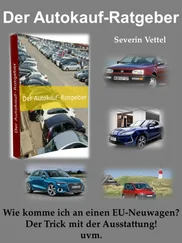'So you are to be the queen's viewer,' he said. By his dress and manner he was clearly the owner of the establishment. He was wearing a dark grey tunic of old-fashioned cut with comfortable loose pantaloons. On his feet were well-worn but beautiful stitched slippers. Had he been standing, I doubted that he would have come only halfway up my chest, and I observed that he had developed the forward stoop of the very old. He held his head hunched down carefully into his shoulders and the hand that held the apple, was mottled with age. Yet his small, narrow face with its slightly hooked nose and close-set eyes, was a youthful pink, as if he had never been exposed to the wind and rain. His hair, which he had kept despite his age, was pure white. He looked very carefully preserved. It was impossible to read any expression in the watery, bright blue eyes which regarded me shrewdly.
'Do you know anything about jewellery and fine metals?' he asked.
I was about to tell this delicate gnome of a man that I had lived for two years in an Irish monastery where master craftsmen produced exquisite objects for the glory of God — reliquaries, platens, bishops' crosses and so forth — made in gold and silver and inlaid with enamel and precious stones. But when I saw those neutral, watchful eyes, I decided only to answer, 'I would be pleased to learn.'
'Very well. Naturally I am happy to accede to the queen's request. She is one of my best customers. We'll provide you with board and lodging — rent free of course, though nothing was said about paying any wages.' Then, speaking to the doorkeeper who had stood behind me, he said, 'Call Thurulf. Tell him that I want a word.'
The servant left by a different door from the one we had entered through and, as he opened it, that same puzzling sound came bursting in, at much greater volume. It seemed to be coming from below. Now I remembered a similar sound. As a boy, I had been befriended by Tyrkir the metalworker and had helped him at his forge. When Tyrkir was beating out a heavy lump of iron, he would relax between the blows by letting his hammer bounce lightly on the anvil. This is what I was hearing. It sounded as if a dozen Tyrkirs were letting their hammers tap idly in a continuous, irregular ringing chorus.
Another burst of the sound accompanied the young man who now stepped into the reception room. Thurulf was about my age, about eighteen or nineteen, though taller. A well-set-up young man, his cheerful countenance was fringed by a straggly reddish-orange beard which made up for the fact that he was going prematurely bald. His face was ruddy and he was sweating.
'Thurulf, be so kind as to show our young friend Thorgils to a guest room - the end room, I think. He will be staying with us for some time. Then you might bring him down to the exchange later in the afternoon.' With studied courtesy the old man waited until I was walking out of the door before he turned back to take the next bite of his apple.
I followed Thurulf’s broad back as he stepped out onto an internal balcony, which ran the entire length of the building, and found myself looking down on a curious sight.
Laid out below me was a long workshop. It must have been at least forty paces in length and perhaps ten paces broad. It had the same small high windows protected with heavy bars which I had seen in the ground-floor antechamber. Now I noticed that the outer wall was at least three feet thick. A heavy, narrow workbench, set high and securely fixed, ran for the full length of the wall. At the bench a dozen men sat on stools. They were facing the wall, away from me, so I could only see the backs of their heads and they were bowed over their work, so I could not make out what they were doing. All I could see was that each man held a small hammer in one hand and what looked like a heavy, blunt peg in the other. Each worker was making the same action, again and again and again. From a box beside him he lifted an item so small that he was obliged to pick it up carefully between forefinger and thumb, then he placed it in front of him. Next he set the peg in position and struck the butt end with his hammer. It was the metallic sound of this blow repeated regularly by a dozen men, which I had been hearing from the moment I had entered Brithmaer's premises.
Looking down on the line of stooped, hammer-wielding workmen as they beat out their rhythm, I wished Herfid the skald had been standing beside me. I knew exactly what he would have said: he would have taken one glance and burst out, 'Ivaldi's Sons!' for they would have reminded him of the dwarves who created the equipment of the Gods: Odinn's spear, Thor's hammer and the golden wig for Sif, Thor's wife, after she had been shorn by the wicked Loki.
Thurulf led me along the balcony to the last door on the right and showed me into a small sleeping room. It had a pair of wooden beds, set into the walls like mangers, and I put my leather satchel on one of them to claim it. The battered satchel was my only baggage.
'What are all those men with the hammers doing?' I asked Thurulf.
He looked puzzled by my ignorance. 'You meant with striking irons?'
'The men in the workshop down there.'
'They're making money.' I must have looked mystified, for Thurulf went on, 'Didn't you know that my uncle Brithmaer is the king's chief moneyer?'
'I thought he was the royal jeweller.'
Thurulf laughed. 'He's that also in a small way. He makes far more money by making money, so to speak, than by supplying the palace with gems. Here, I'll show you.' And he led me back to the balcony and down a wooden ladder, which led directly to the floor of the workshop.
We walked over to the heavy bench and stood beside one of the workmen. He did not lift his head to acknowledge our presence or break the steady rhythm of his hammer. In his left hand was the metal peg which Thurulf called the 'striking iron'. I could see that it was a blunt metal chisel about five inches long and square in section, with a flat tip. With the hand that held the striking iron, the man stretched out to a wooden box on the bench beside him, and used finger and thumb to pick up a small, thin, metal disc. He then placed the disc carefully on the flat top of a similar metal peg fixed into the heavy wooden bench in front of him. Then, as the little disc balanced there, the workman brought the striking iron into position on top of it, and gave the butt of the iron a smart blow with his hammer. Lifting the iron, he used his right hand to pick up the metal disc and drop it into a wooden tray on his right-hand side.
Thurulf reached out, took one of the metal discs from the first box and handed it to me. It was about the size of my fingernail and I saw that it was plain unmarked silver. Thurulf took back the disc, returned it to the box, then picked up a disc from the tray on the workman's right. This too he handed to me, and I saw that on one side the disc bore a stylised picture of the king's head. Around the margin were stamped the letters knut, a small cross, and a leaf pattern. Turning the disc over, I saw the leaf pattern repeated and over it was stamped a larger cross. This time the lettering read brthmr. I was holding one of Knut's pennies.
Thurulf took back the penny, carefully replaced it in the box of finished coins arid, holding me by the arm, led me away from the workmen so we could speak more easily over the constant ringing of the hammers.
'My uncle holds the king's licence to make his money,' he said. He still had to raise his voice to make himself heard clearly. 'In fact, he's just been named a mint master, so he's the most important moneyer in London.'
'You mean, there are other workshops like this?'
'Oh yes, at least another dozen in London. I'm not sure of the exact number. And there are several score more moneyers in towns scattered all around England, all doing the same work, though each moneyer has his own mark on the coins he stamps. That's in case of error or forgery so the king's officials can trace a coin back to its maker. My own family are moneyers up in
Читать дальше








